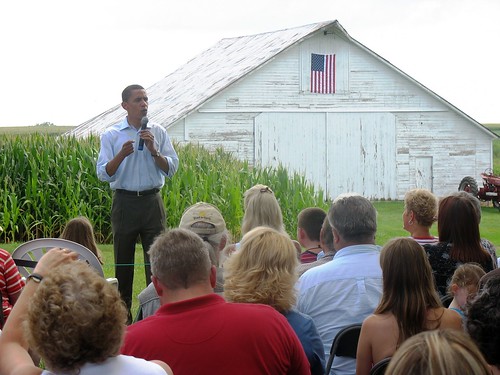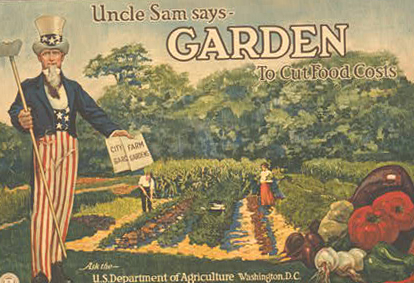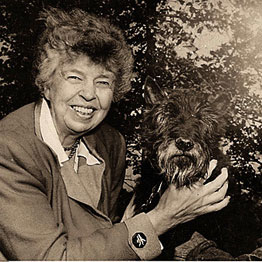Dear 16 year-old me,
 Yogurt from our goats' milk
Yogurt from our goats' milk
Hey you, pulling your PETA literature out of the family mailbox on the rural route. Good for you. You're doing your best to do the right thing. I'm proud of you for realizing that food is important, and for grasping that the way most of the food you've been eating is produced is brutal, unhealthy, and morally repugnant.
Good job saying goodbye to your beloved quarter-pounder with cheese. I'm proud of you for believing with all of your heart that our small, daily actions are important and that personal decisions have the power to create social change. You are right. You will probably be happy to know that your 38 year-old counterpart still believes in that power. I so appreciate your passion and your conviction, and your desire to know the truth and do the right thing.
Specifically, you're right about the meat industry as it exists. The meat and milk and eggs you can find on the shelves of your supermarket in the late 1980s are beyond bad. But what you don't know now is that by the time you're in your thirties, the range of food options available to you will be very different. And your perspective will be more nuanced and complex. Things will have changed, and you will have changed. We could have a long conversation about meat, animals, vegetables, and health - I would love that and it would be spirited, contentious, and fun.
Maybe I'll continue to write to you here in this format that wasn't invented (the blog) on something called the internet, which was just a glimmer in Al Gore's eye back when you were reading Peter Singer's Animal Rights.
But for now, there's one thing in particular I hear you saying that I'd like to respond to: "humans are the only animals that drink another animal's milk." I know you think it's disgusting and unnatural, and it's also wrapped up in your new-found insight into factory-farmed dairy - where sick, exhausted milk cows are hooked up to milking machines, pumped full of antibiotics and hormones, and living miserable lives. Twenty years later, there are still articles circulating on Facebook (something else that hasn't even been dreamed of yet - Mark Zuckerberg is probably in preschool) about how unhealthy and unnatural milk consumption is for humans.
But here is the answer that pops into my head twenty years later to your impassioned, heartfelt, and true statement:
Yes. Humans are the only animals that drink the milk of another animal. We are the only animals that do many of the things that we do. Let me name a few: cultivate gardens, plant seeds, cook, build fires to keep warm. There are many more examples.
Some of the things that we do that no other animals do are destructive and morally questionable. You and I do some of them anyway. An example in this category would be driving in cars on highways. Some of the things we do that no other animal does are not destructive or morally wrong just because they are unique to us. For example, we plant potatoes.
Would you be surprised to know, dear teenaged me, that the you of the future owns dairy animals? Our animals our healthy and happy, we milk by hand, and we drink the milk raw. I also plant potatoes, something no other animals do. I believe that the milk our goats produce, like the vegetables we grow in our gardens, is healthier and more nutritious than food you can find on supermarket shelves.
Oh dear sweet, sharp, scrappy, strident, loving, and well-intentioned me, here is what I'd most like to say to you: be as gentle with yourself and others as you are with the planet. Be open to change. Be open to changing your mind.
If you could know that after 20 years of strict vegetarianism and intermittent veganism you would suffer from debilitating health problems that very likely were caused or exacerbated by your diet, would you still make the same choices? Maybe so. And maybe those choices were the right ones at the time. Looking back, I think they probably were given your options at the time. But as clearly as you know that factory-farmed meat and dairy and eggs are wrong, I know that raising animals for eggs, milk, and meat can be part of an ethical way of life.
And as for milk, I say YES, humans stand alone as a species in having domesticated other animals in order to drink their milk and make cheese, yogurt, whipped cream, and butter from it. I'm so glad we do! Milk in its natural state - not factory-farmed, processed, and lifeless but fresh from the goat (or cow) is good food. Protein. Fats. Healthy bacteria. You can read a lot about it these days when information is so very accessible compared to the way it was in the late 1980s. (Here are a few things I've posted in recent years involving milk.)
I'm fascinated by the history of this relationship between humans and our domesticated animals, and grateful to be part of the continuing tradition of caring for these animals well on a small, homestead scale.
So there you have it, 16 year-old self. You will one day make butter. No other animal does that. And you will love that butter and know how good for you it is. You will know the animals that produce the milk you use are happier in your dairy-loving care than they would be just about anywhere else. And you will believe with all of your heart that it benefits the planet for people to produce their own food, including raising dairy animals for milk.
Oh, and you'll get to see R.E.M. live four or five times in the future (which is now my distant past), the prospect of which I know is pretty thrilling to you. Enjoy!
Love you!
~B













 Here's the first bread baked in the wood cookstove yesterday on President Obama's first day in office:
Here's the first bread baked in the wood cookstove yesterday on President Obama's first day in office:








